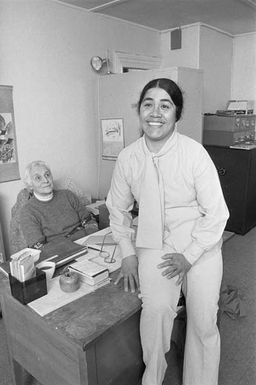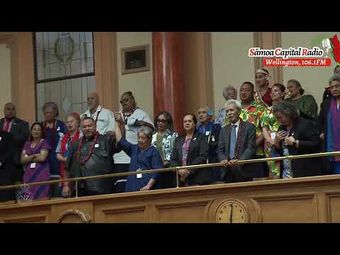The citizenship of Western Samoans
- Description:
- From 1920 until 1962, New Zealand administered Western Samoa under League of Nations and United Nations mandates. After Western Samoa became independent in 1962, the status of its citizens in New Zealand was uncertain. In a key legal case, Falema‘i Lesa ...
- Location:
- Samoa
- Format:
- StillImage
- Collections:
- Te Ara - The Encyclopedia of New Zealand
- Contributors:
- Alexander Turnbull Library
- Publisher:
- Ministry for Culture and Heritage Te Manatu Taonga
- Content partner:
- Manatū Taonga, the Ministry for Culture and Heritage
- Availability:
- Not specified
-
Copyright status: All rights reservedFind out more about what you are able to do with this itemThis item is all rights reserved, with means you'll have to get permission from Manatū Taonga, the Ministry for Culture and Heritage before using it. For more information, please see our use and reuse page.More informationManatū Taonga, the Ministry for Culture and Heritage has this to say about the rights status of this item:
Permission of the Alexander Turnbull Library, National Library of New Zealand, Te Puna Mātauranga o Aotearoa, must be obtained before any re-use of this image.
What can I do with this item?Non-infringing useNZ copyright law does not prevent every use of a copyright work, and this item may be hosted by an international institute or organisation. You should consider what you can and cannot do with a copyright work.No sharingYou may not copy and/or share this item with others without further permission. This includes posting it on your blog, using it in a presentation, or any other public use.No modifyingYou are not allowed to adapt or remix this item into any other works.No commercial useYou may not use this item commercially.
Related items
Welcome and warm Pasifik greetings
The information on this site has been gathered from our content partners.
The names, terms, and labels that we present on the site may contain images or voices of deceased persons and may also reflect the bias, norms, and perspective of the period of time in which they were created. We accept that these may not be appropriate today.
If you have any concerns or questions about an item, please contact us.


